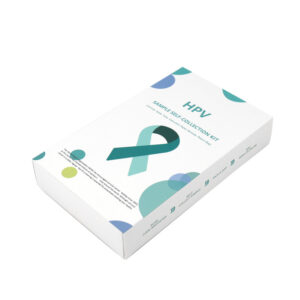Human Papillomavirus (HPV) is a common sexually transmitted infection that affects both men and women. While most HPV infections do not cause any symptoms and clear up on their own, certain high-risk strains can lead to various health complications, including potential impacts on fertility. In this article, we will explore the relationship between HPV and fertility, including its effects on both men and women, the potential risks during pregnancy, and available preventive measures.

HPV and Female Fertility
1. Cervical Health: HPV infection can lead to abnormal cell changes in the cervix, increasing the risk of cervical cancer. In some cases, treatments for cervical dysplasia or cancer may affect fertility, such as cervical conization or hysterectomy.
2. Pelvic Inflammatory Disease (PID): HPV infection, especially when combined with other sexually transmitted infections, can lead to PID. PID can cause scarring and damage to the fallopian tubes, potentially leading to infertility or ectopic pregnancies.
3. Assisted Reproductive Technologies (ART): Women with HPV may face challenges during in vitro fertilization (IVF) procedures due to the potential impact of the virus on the quality of embryos or implantation success.
2. HPV and Male Fertility
1. Sperm Quality: Studies suggest that HPV infection can affect sperm motility, morphology, and DNA integrity, potentially reducing male fertility.
2. Transmission to Partners: Men with HPV can transmit the virus to their female partners, increasing the risk of cervical abnormalities and potential fertility issues.
3. Assisted Reproductive Technologies (ART): Similar to women, men with HPV may experience reduced success rates during assisted reproductive procedures, including intrauterine insemination (IUI) and IVF.
HPV and Pregnancy
1. Vertical Transmission: HPV can be transmitted from an infected mother to her baby during childbirth. While most cases do not result in complications, certain high-risk HPV strains can cause respiratory papillomatosis in infants.
2. Pregnancy Complications: Some studies suggest a potential link between HPV infection and an increased risk of preterm birth, premature rupture of membranes, and low birth weight. However, further research is needed to establish a definitive association.
3. Prevention: Vaccination against HPV before pregnancy can significantly reduce the risk of transmission to the baby and potential pregnancy complications.
Preventive Measures
1. Vaccination: HPV vaccines, such as Gardasil and Cervarix, are highly effective in preventing infection with the most common high-risk HPV strains. Vaccination is recommended for both males and females before becoming sexually active.
2. Safe Sexual Practices: Consistent condom use and limiting the number of sexual partners can reduce the risk of HPV transmission.
3. Regular Screening: Routine Pap smears and HPV testing for women, as well as regular check-ups for men, can help detect and manage HPV-related abnormalities early on.

MEIDIKE GENE HPV Test Kit
While HPV infection can pose potential risks to fertility and pregnancy, it is essential to remember that most HPV infections do not lead to severe complications. Regular screenings, safe sexual practices, and HPV vaccination can significantly reduce the risk of transmission and related fertility issues. Consultation with healthcare professionals is crucial for individuals seeking guidance on managing HPV and ensuring optimal reproductive health.


















